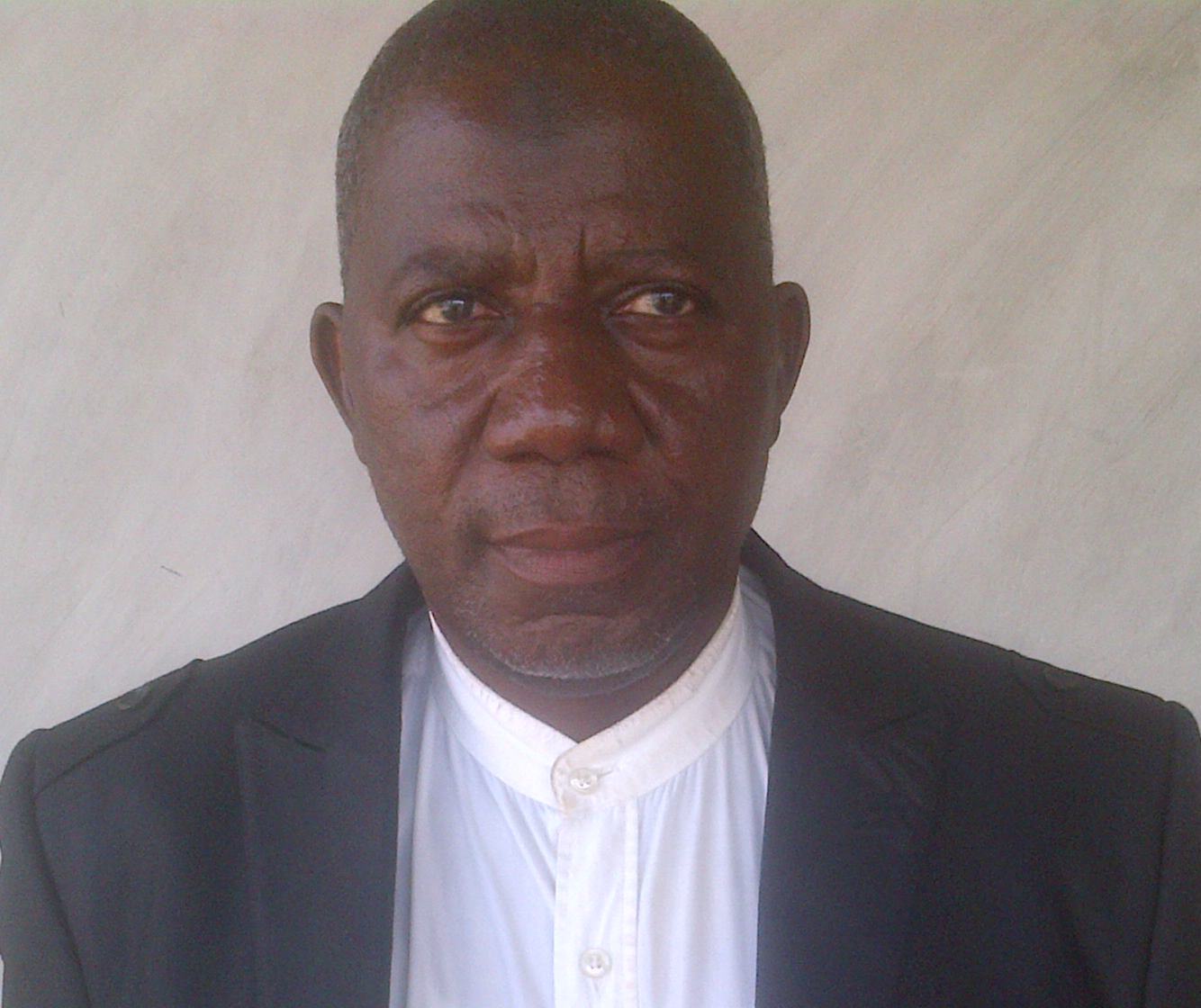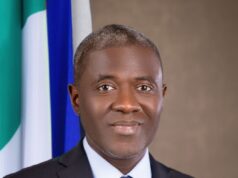
Between Friday 18 and Sunday 21 September, 2014 the Annual General Meeting of the Nigerian Diaspora Organization (NIDO) in the United States and the Americas took place at the Embassy Suites, Columbus, State of Ohio, United States. There is no doubt that the sweet memories of the epochal conference would linger in the minds of many for a long time to come due to its resounding success.
For the Minister of FCT, Senator Bala Mohammed who was represented at the conference by the Permanent Secretary of FCT, Engr. John O. Chukwu, it was a moment of honour as his land reforms and infrastructure provision mechanism received high rating.
The event whose theme was, “Nigeria’s Transformation Agenda and Leadership Accountability: The Role of Nigerians in Diaspora” attracted no fewer than 500 delegates from the Americas and Nigeria. These comprised the Nigerian Diasporans in the Americas, their allies, friends of Nigeria, Afro-Americans, Nigerian lawmakers, top Nigerian government functionaries, diplomats and many others. The FCT Minister made an elaborate power point presentation at the event. Among the areas covered were investment opportunities in FCT, transportation, security, strategies for accelerated infrastructure provision and general land reforms.
The highly revealing presentation was greeted with a thunderous ovation by the delegates many of whom became enthusiastic to invest in Abuja. They were particularly enamored by the innovative land swap policy designed to catalyze development and at the same time bring down spiraling property cost in the nation’s capital.
The Permanent Secretary, after the presentation, was besieged by the Diaspora members and other potential investors from different parts of the US, Canada and other American countries. They were all making enquiries on how they could tap into the new opportunities in FCT.
While calling on Nigerians in the Diaspora to take opportunity of the current transformation agenda and invest in Nigeria, particularly the Federal Capital Territory, Engr. Chukwu urged them to think more about what they could contribute to the development of Nigeria and less about what they could get from it.
He stressed that demonization of Nigeria, its government and people by the Nigerian Diaspora rather than solve would worsen the challenges facing Nigeria. He added that the time is now for the Nigerian Diaspora to act fast to assist in finding solution to the challenges confronting the nation.
One interesting strand of the discussions among the delegates after the FCT’s presentation was the correlation some of them drew between ongoing infrastructure cum general developmental revolution in Abuja and Dubai’s transformation from an outlandish idea to an economic powerhouse of the Middle East.
A parallel was drawn between Senator Bala Abdulkadir Mohammed, the man whose magical infrastructure and PPP modules are accelerating the development of Africa’s fastest growing city and the architect of the rapid transformation of Dubai, the United Kingdom-trained Sheikh Mohammed bin Khalifa Al Maktoum.
Sheikh Mohammed combined the speeds of a gazelle and a lion to transform Dubai into a world mega business hub of repute. In the story of the gazelle and the lion, one is running to eat while the other is running to live. Realizing that life is a race, Sheikh Mohammed never abandoned one opportunity to wait for another.
Through a parallel strategy designed to lure multinational companies, Sheikh Mohammed successfully turned Dubai into the global business hub of the Middle East. Senator Mohammed is doing the same through the land swap programme in Abuja.
The land reform decree issued by Sheikh Mohammed in 2002 allowing foreigners to own real estate in Dubai — a first in any Gulf state, is akin to the courageous land reforms and the swap strategy introduced by Senator Mohammed in 2011 in FCT.
Prior to the reforms, Dubai had no real estate market and land was given out under semi-feudalism. In other words, all land was held by the sheikhs or by favored Emirati friends upon whom the sheikhs had bestowed parcels. Everyone else — including every foreigner — was a tenant. But with the 2002 reform, anyone could buy a home or land in Dubai — an opportunity with particular appeal to wealthy families in unstable countries nearby and other around the globe. For example, “loaded Lebanese afraid of another civil war back home, Indian nouveaux riches seeking respite from the poverty at their doorsteps, and Russian oligarchs banking assets stripped from operations in their decaying motherland all poured cash into Dubai properties.” Overnight, Dubai became a place for the magnates of the Middle East, Africa (including Nigeria), South Asia and the former Soviet Union to park wealth too risky to keep back home. A highpoint of the mad rush for Dubai occurred in 2009, “when the dictator of Azerbaijan amassed nine waterfront mansions during a two-week, $44 million buying spree — all purchased in the name of his 11-year-old son.”
Back in Nigeria, with the land swap and an unprecedented land reform in place under the midwifery of Senator Mohammed, Abuja is fast becoming a veritable global outpost and has clearly emerged as one of the three fastest-growing cities in the world. The reforms introduced by Senator Mohammed have ignited massive booms.
Between 2010 and date with the current Minister in the saddle, Abuja’s population has nearly doubled and its urbanized footprint tripling. Statistics show that standard housing development for residential and institutional use has quadrupled in numbers and still ballooning. The rapid turnaround is the product of Senator Mohammed ability to think outside the box.
As Engr. Chukwu put it in Ohio at the 2014 NIDO Summit, the implementation thrust of the Transformation Agenda in FCT is to open up the Territory to unfettered private capital-driven development. He said it was this thrust that made the FCT Administration to introduce the Land Swap programme as a catalyst for accelerated infrastructure, housing and overall development.
According to him, the private sector under the programme would be incentivized to provide site and services within the districts. Thus Government’s emphasis would be to provide the policy, legal regulatory environment for seamless private sector participation in the development of the districts of the FCT. Of course, the benchmark of the current rolling plan is to open up by providing modern infrastructure in at least 10 new districts within five years. The programme is based on contractual Agreement with no fewer than 15private investors on the basis of the Land-for-Infrastructure Swap Framework at the onset.
The total land area for the development in the present package is 4,283.2 hectares within Phase IV of the Federal Capital City (FCC). It is projected to require a minimum of $3.8 Billion of private sector capital. The distance of this area is averagely 20 minutes from the City centre and 15 minutes fromthe Nnamdi Azikiwe International Airport, Abuja.
The benefit analysis of the investment initiatives of the FCT Administration include creation of more than 300,000 jobs within the plan period; inflow of over N1 trillion investment to the FCT; reduction of housing deficit by 20%; reduction of cost of rent/lease by 15%; increased funding to human capital development and enhanced security of lives and properties 20% of schooling population.
Abuja under Senator Bala Mohammed with its vibrant economy anchored on an emerging class of home-grown multinational corporations which are as able as they are eager to participate in the global growth party is the ideal place for the moment. With the right policy in place and a robust security network in place, the Federal Capital Territory is reshaping business and redefining the African economy for a powerful launch on the global stage.
Other speakers at the Ohio NIDO conference include former Nigeria’s Permanent Representative at the United Nations, Professor Ibrahim Gambari who spoke on “Nigeria’s Diplomatic Strategies in Relation to the Transformation Agenda”, Professor Vince Anigbogu of the Institute for National Transformation, Abuja who delivered the keynote address; Professor Ilesanmi Adesida, Vice Chancellor for Academic Affairs and Provost, University of Illinois who spoke on “How Nigerians in the Diaspora can Transfer their intellectual property/capital for the Transformation of Nigeria into a Technological Superpower,” Dr. Harry Alford, President/CEO, US National Black Chamber of Commerce; Professor Kelechi Kalu, Vice Provost for Global Strategies and International Affairs, Ohio State University whose lecture was on “Safety and Security and Nigerian Transformation Agenda” and others.
Among others were the Nigerian Ambassador to the United States, Dr. John Adefuye, Professor Hauwa Ibrahim of the Harvard, Architect Bernard Lot, the Director of Public Building of the Federal Capital Development Authority, Professor Chris Igodan of Ohio State University, Dr. Kate Okpaleke of the, Engineer Mike Akpan and many others.
NIDOA Board of Directors Chairman, Chief Gabe Okoye in his welcome address said that the average of about $21.5billion was remitted to Nigeria in the past two years by Nigerians in Diaspora, a contribution only surpassed by oil revenue.
One thing which the NIDO members are expecting with bated anxiety is the creation of the Diaspora Commission by the Federal Government to act as a medium for seamless interface between Nigerians in the Diaspora and their native land. In other words it is expected to serve as the vehicle through which the Nigeria Diaspora Community can channel their vast resources to Nigeria for the development of the country, the NIDOA leader reasoned.
Chief Okoye likened the creation of the commission to former President John Kennedy’s call for Americans to ask for what they can do for their country, not what their country can do for them. With the resolution passed by this year’s National Conference recommending the creation of the commission, Okoye and other NIDO members are upbeat that their dogged push for its birth is beginning to yield the expected result.
“We must use the opportunity availed to us by this conference to plant in the ears of all our guests, especially those from the homeland that, we unapologetically insist on the implementation of the resolutions of the National Conference,” Okoye added. In his opinion, the resolutions have common sense, relevant and equitable.
[myad]
• Nosike Ogbuenyi , the Special Assitant on Media to the FCT Minister was in Columbus, Ohio for the NIDO Conference.






